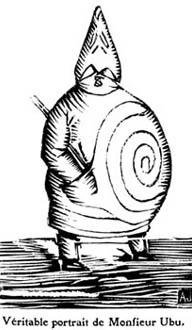User Login |
"Baise-Moi" ("Rape Me") by Virginie Despentes (Andrew)
Baise-Moi (“Rape Me”)
Virginie Despentes translated from French by Bruce Benderson In 2002, French filmmaker Gaspar Noé devastated audiences with his brutal film “Irreversible,” notorious for a nine-minute long rape and battery sequence. Shot all in one take and with improvised dialog, this scene showcased Noé’s brilliant and unrelenting ability to capture atrocities. Visceral films are rarely so compelling, and despite whatever criticisms could be made about “Irreversible” as a whole, there is no denying the skill that went into this scene’s unsettling blend of art and horror. Truly, few artists are willing to dig so deep. There is, of course, a place for violence and horror in everyday entertainment—from patriotic war films to the evening news—but films like “Irreversible” operate outside the reasons these mediums use to redeem their excess. Typically, excessively violent movies that do not redeem themselves are branded as “exploitation films.” In a way, exploitation films center on “violence for violence’s sake.” The story of an exploitation film would only be an excuse to show as much graphic violence as possible. In this way, films like “Irreversible” succeed by using base qualities of entertainment—like the extremes pushed by exploitation films—to uncover new forms of critique. “Baise-Moi” (translated in English as “Rape Me”) exemplifies the possibilities of this approach. When it was first released in France in 1999, it became an immediate controversy. This controversy then exploded a year later when a film version was released and banned by the French government. Few books could ask for better publicity, which might explain why “Baise-Moi” made it into English. Essentialy, nothing about “Baise-Moi” would be appealing to most readers. The story centers on two young women—Manu and Nadine—and their murderous rampage across France. It begins after Manu and her friend are brutally raped and beaten. Manu then crosses paths with Nadine, a porn-obsessed prostitute who has just strangled her roommate. From there, the book catalogues their violent and sexual adventure using a graphic, yet minimal language perfect for this nihilist epic. Much of the story bares a hilarious resemblance to the movie “Thelma and Louise,” which was most likely intentional. Such a connection allows “Baise-Moi” to operate as a dark and funny satire of cliché Hollywood feminism. But make no mistake—“Baise-Moi” is a feminist story. The difference is that the rage of these two anti-heroines stems from a position of total debasement. After Manu and her friend had just been raped, Manu explains where she’s coming from: “I don’t give a fuck about [the rapists’] poor jerk-off cocks and because these aren’t the first and because they can go shit on themselves. It’s like a car that you park in the projects, you don’t leave anything valuable in it ‘cause you can’t keep it from being broken into. I can’t keep assholes from getting into my pussy, so I haven’t left anything valuable there…” “Baise-Moi,” like “Irreversible,” can be seen as a rape and revenge story. But in “Baise-Moi,” there is no clear victim or object of revenge. Manu and Nadine recover from their debasement with a basic desire to “live life to the fullest.” They screw random boys and shoot random people. They drink bottle after bottle of whiskey, pass out, and go on killing with a hangover. Their only fear is being stopped. And as their crimes become more and more publicized, the duo welcomes the increased challenge as a way of keeping things interesting. As it progresses, the story manages to become as unsettling as it is uplifting. Gradually, the women take on qualities of a generation-x Bonnie and Clyde. In the end, the book can be seen as a meditation on detachment, the desire for genuine feeling, and the extremes that one must go to find it. It portrays a desire to break with the simulated life of media culture, but without reducing the pursuit to nostalgia. Throughout moral gray area of “Baise-Moi,” two women are given the uncommon role of being the dominant sex, at least for a few infamous days. Unlike the raped women in “Irreversible,” Manu and Nadine are never portrayed as victims, at least not a traditional sense. Instead of revenge, “Baise-Moi” is a story about fighting back—a way to celebrate nihilism as opposed to wallowing in it.
categories [ Text Reviews ]
login or register to post comments | printer friendly version
|
